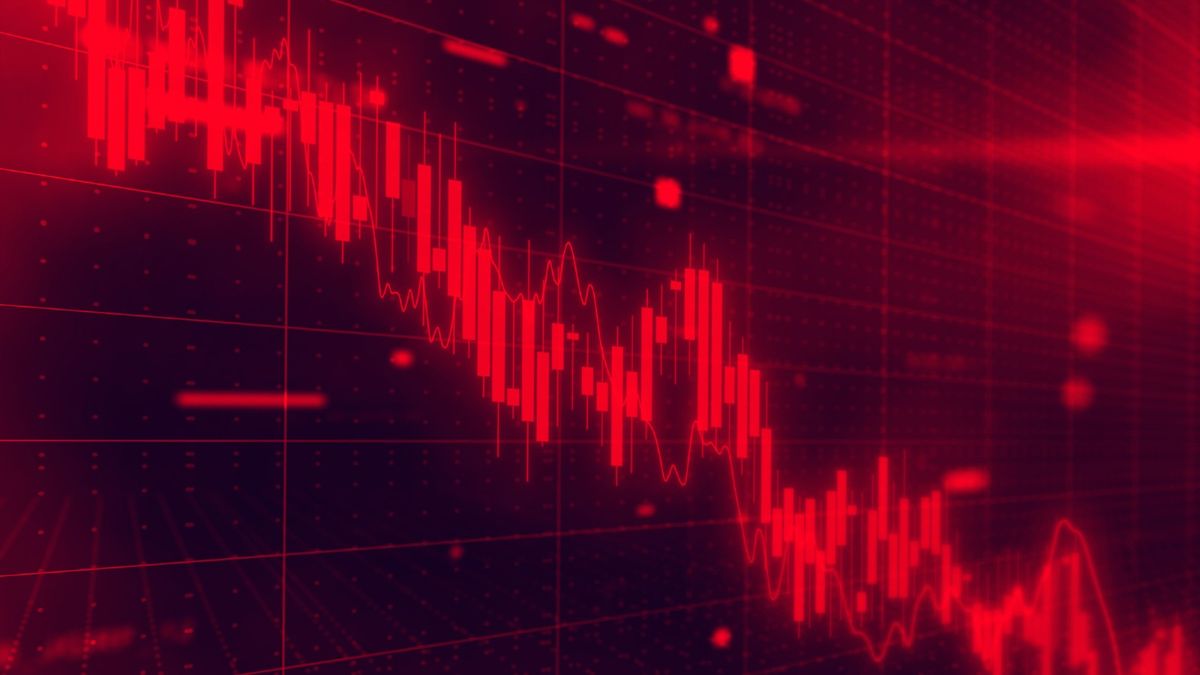The sharp selloff in shares accelerated Friday as weak hiring and rising unemployment sparked a race out of threat property. The Magnificent 7 shares which have contributed nearly all of the bull market’s features led equities decrease, with the Nasdaq-100 getting into correction territory.
Equities are off to a horrible begin in August as a collection of weaker readings on the labor market and different blended financial information have market members more and more anxious that the Federal Reserve waited too lengthy to convey rates of interest down from a 23-year excessive. Friday’s surprisingly weak July jobs report solely intensified these considerations.
U.S. nonfarm payrolls expanded by 114,000 final month, the Bureau of Labor Statistics stated Friday, or nicely beneath economists’ forecast for the creation of 175,000 jobs. Over the previous 12 months, the U.S. financial system created a mean of 215,000 jobs monthly. Moreover, the smooth June jobs report was revised decrease by 27,000 jobs to 179,000.
Subscribe to Kiplinger’s Private Finance
Be a better, higher knowledgeable investor.
Save as much as 74%
Join Kiplinger’s Free E-Newsletters
Revenue and prosper with the perfect of knowledgeable recommendation on investing, taxes, retirement, private finance and extra – straight to your e-mail.
Revenue and prosper with the perfect of knowledgeable recommendation – straight to your e-mail.
The unemployment charge, which is derived from a separate survey, ticked as much as 4.3% in July from 4.1% the prior month. The rise in unemployment triggered the Sahm Rule, a recession indicator with an ideal monitor report over the previous 50 years.
“July’s poor employment report leaves the Fed wanting woefully behind the curve with its determination to carry charges this week, and means that the result of September’s assembly now’s finely balanced between quarter-point and half-point easings,” writes Ian Shepherdson, chairman and chief economist Pantheon Macroeconomics. “The weak spot was broad-based and unattributable to one-time elements, such because the climate: the long-lagged impact of excessively tight financial coverage is guilty.”
A weakening labor market places growing stress on the Federal Reserve’s rate-setting group, the Federal Open Market Committee (FOMC), to decrease the short-term federal funds charge on the subsequent Fed assembly.
As of August 2, futures merchants assigned an 80% likelihood to the FOMC enacting a half-point lower in September, up from 22% a day in the past, in response to CME Group’s FedWatch Instrument. On the identical time, the chances of the Fed making a quarter-point lower at its subsequent assembly dropped to twenty% from 78% a day in the past.
“Threat property are getting hammered on joblessness worries, and traders are now not reacting favorably to detrimental financial developments,” writes José Torres, senior economist at Interactive Brokers. “Fairness indices are promoting off throughout the board.”
By the closing bell, the blue-chip Dow Jones Industrial Common shed 611 factors, or 1.5%, to complete at 39,737. The tech-heavy Nasdaq Composite tumbled 2.4% to 16,776, whereas the broader S&P 500 fell 1.8% to shut at 5,346.
Shares on the transfer
Blended-to-disappointing earnings from Massive Tech names even have markets recalibrating their bets on all issues AI. Earnings season has revealed that large capital spending on generative AI might not show worthwhile as quickly as beforehand thought.
Amazon.com (AMZN) inventory fell 8.8% after the world’s largest e-commerce firm reported blended earnings outcomes for its second quarter and issued an outlook for the third quarter that fell simply wanting expectations.
However Wall Avenue would not appear too nervous concerning the outcomes. “Amazon’s synthetic intelligence (AI) initiatives proceed to be deep, broad, well-adopted and supported,” says Aron Bohlig, managing companion at ComCap. “AI and superior know-how investments embrace: chips, main partnerships with NVIDIA, many main mannequin enhancements, programming interfaces, robots and robotic taxis.”
When combining these AI initiatives with “Amazon’s leisure, healthcare and grocery merchandise, the corporate actually is a single supply for many shopper’s main wants and its place in these markets continues to enhance,” Bohlig provides.
Elsewhere, Apple (AAPL) inventory rose 0.7% after the know-how big reported better-than-expected earnings outcomes for its fiscal third quarter and hinted at comparable development in its fiscal fourth quarter.
Within the three months ended June 29, Apple’s income elevated 4.9% year-over-year to $85.8 billion, pushed by 14.1% development in companies to $24.2 billion. Its earnings per share (EPS) improved 11.1% from the year-ago interval to $1.40.
“Throughout the quarter, our report enterprise efficiency generated EPS development of 11 p.c and almost $29 billion in working money stream, permitting us to return over $32 billion to shareholders,” stated Apple Chief Monetary Officer Luca Maestri in a press release. “We’re additionally very happy that our put in base of energetic gadgets reached a brand new all-time excessive in all geographic segments, because of very excessive ranges of buyer satisfaction and loyalty.”
Intel failure
Intel (INTC) inventory plunged 26% after the chipmaker missed top- and bottom-line expectations for its second quarter and supplied a weak outlook for its third quarter.
To make issues worse, as a part of its efforts to chop prices, Intel stated it’s lowering its headcount by 15% and quickly eliminating its dividend.
“Intel is taking the added step of suspending the dividend beginning within the fourth quarter, recognizing the significance of prioritizing liquidity to assist the investments wanted to execute its technique,” the corporate stated. Nonetheless, Intel famous that it has “a long-term dedication to a aggressive dividend as money flows enhance to sustainably larger ranges.”
INTC suffered its worst session in half a century to shut at ranges final seen greater than 10 years in the past. The as soon as mighty tech titan has been a disaster for buy-and-hold traders. Certainly, anybody who put $1,000 into Intel inventory 20 years in the past ought to be horrified by what the funding is value at present.

